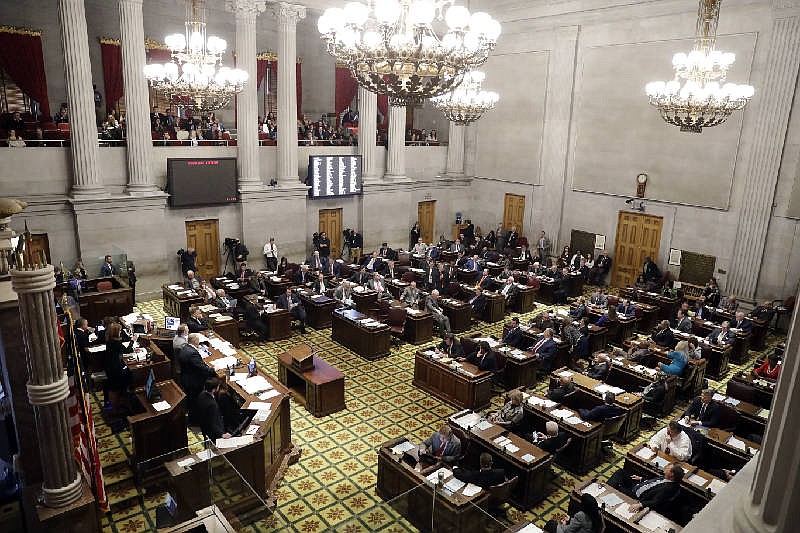NASHVILLE - State House Republicans on Thursday approved legislation stripping Tennessee cities' appointed police oversight boards from exercising independent subpoena powers to investigate complaints against officers.
The vote on House Bill 658 was 66-26, with one member simply voting present. The Senate is working on a different version.
Democrats, including several from Nashville, where voters last year approved an oversight board with subpoena powers, objected to the bill. Several Republicans joined them.
Those speaking against the bill included Rep. Yusuf Hakeem, a Democrat who represents parts of the city of Chattanooga where council members are looking at implementing their own board. Rep. Mike Carter, R-Ooltewah, spoke in favor of the restrictions.
The House bill among other things eliminates an oversight board's ability to use subpoenas to compel production of documents and witnesses to appear before the panel.
Instead, the boards would have to go through an elected city council.
Rep. Michael Curcio, R-Dickson, who doesn't represent Nashville, said he brought the legislation after concerns expressed by "constituents" over a 2018 Metro Nashville charter amendment approved by 58 percent of voters. It bestowed subpoena powers on the oversight board there.
The bill establishes a set of "best practices," Curcio said, and would provide "guard rails" whereby the board would go to an elected city council to get documents and bring witnesses before the board.
During debate, Hakeem voiced concerns about the bill, calling it yet another effort by Republicans to "usurp the power of the local government that we put in trust."
"I believe this is about trust, this is about limited government and an opportunity for us to be consistent in what we believe," Hakeem said.
Republican Caucus Chairman Cameron Sexton, R-Crossville, offered up the GOP's often-cited argument in the General Assembly when the state pre-empts actions taken by cities.
"Don't be fooled," Sexton said, "the state has the power and duty to oversee local governments."
Carter, an attorney and former Hamilton County judge, spoke in support of Curcio's bill, saying Metro Nashville's subpoena process, if not stopped, would create "chaos."
He noted grand juries are the "most powerful investigating arm of government."
"What do we say to the grand jury when they have the same investigative abilities" as a police oversight board with subpoena powers, Carter asked. "We don't trust your judgment? That is exactly what we're saying."
The city of Knoxville's police oversight board has operated for decades with subpoena powers, although officials there have said they have never actually needed to resort to using one.
Memphis has an oversight board which can go through the elected city council to seek documents and testimony.
Chattanooga City Council members have been looking at creating a police oversight board and avoiding the subpoena-power controversy even as the issue swirled in the General Assembly.
In the Senate, Sen. Mike Bell, R-Riceville, and colleagues have amended his bill to require that a board hire a special investigator or utilize the police chief or head of police internal affairs to request subpoenas from a judge.
Lt. Gov. Randy McNally, R-Oak Ridge, the Senate speaker, told reporters later that "I think [the bill] will probably end up in conference committee, and it'll probably come out with something that's in the middle."
Hakeem was the lone Hamilton County delegation member voting against the bill.
Carter and fellow Republican Reps. Patsy Hazlewood of Signal Mountain, Esther Helton of East Ridge and Robin Smith of Hixson voted in support.
Curcio's bill also prohibits cities from setting specific demographic diversity requirements for members. Another provision requires that oversight board members be registered voters of the local government.
House Speaker Pro Tem Bill Dunn, R-Knoxville, was one of four Republicans voting no. One Democrat simply voted present, while a fifth Republican and two Democrats did not vote.
Contact Andy Sher at asher@timesfreepress.com or 615-255-0550. Follow him on Twitter @AndySher1.
